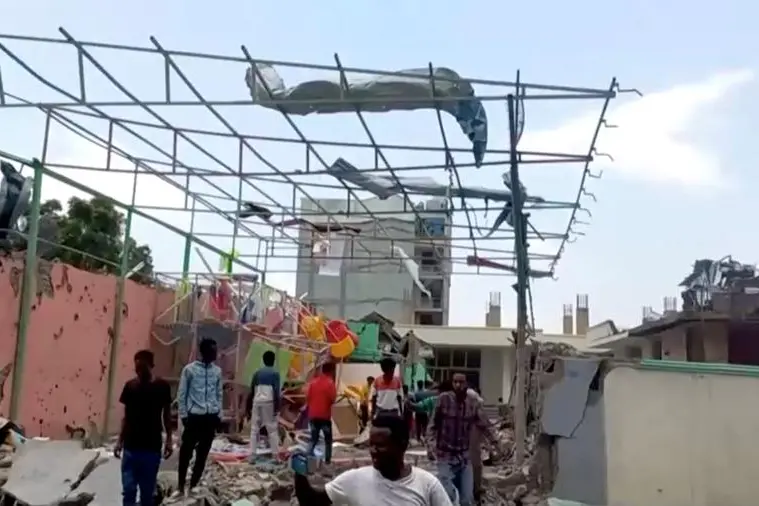PHOTO
NAIROBI - African Union-led peace talks proposed for this weekend to try to end a two-year-old conflict in Ethiopia's northern Tigray region have been delayed for logistical reasons, Tigray regional forces and two diplomatic sources said on Friday.
Ethiopia's government and Tigray forces said on Wednesday that they accepted the AU's invitation to talks in South Africa, which would be the first formal negotiations between the two sides since war broke out in November 2020.
The conflict in Africa's second most populous nation pits the federal government against regional forces led by a party that used to dominate national politics. Thousands of civilians have been killed and millions uprooted by the violence.
The diplomatic sources, who asked not to be named, said the postponement was related to organising logistics and that a new date had not yet been scheduled.
Getachew Reda, a spokesperson for the Tigray People's Liberation Front (TPLF), the party that leads the regional government, said the AU did not consult Tigrayan leaders before sending out the invitations.
"You don't just expect people to show up on a certain date as if this was some kind of get-together," he said in a text message.
Ethiopian government spokesperson Legesse Tulu and Ebba Kalondo, an AU spokesperson, did not immediately respond to requests for comment.
The negotiations will be led by Olusegun Obasanjo, the AU High Representative for the Horn of Africa, according to one of the AU's invitation letters seen by Reuters.
Despite the agreement to hold talks, various parties have voiced concerns.
Some activists from Amhara, a region bordering Tigray that has fought alongside the federal government in the war, oppose the talks.
"The current AU-led peace talks process excludes Amharas - the largest affected group in the war," the Amhara Association of America, a lobby group, said in a statement.
Even in its letter accepting the AU invitation, the TPLF suggested it had reservations, asking for clarification on who had been invited as participants, observers and guarantors.
"There are a number of issues that need to be resolved before (talks) occurs, and mediators will then face a major challenge ... to get the two parties to commit to a new truce,” said William Davison, senior analyst for Ethiopia at the International Crisis Group think-tank.
Meanwhile, the government of neighbouring Eritrea, which has also fought alongside Ethiopia's federal government in the war, has not been invited to the talks, the two diplomats said.
Eritrean Information Minister Yemane Gebremeskel did not immediately respond to a request for comment.
(Reporting by Giulia Paravicini Editing by Aaron Ross, Mark Heinrich and Frances Kerry, William Maclean)





















